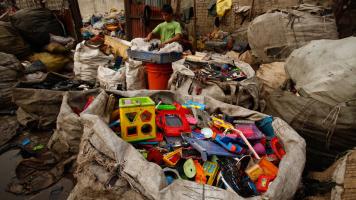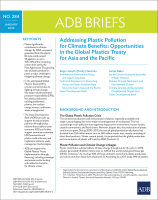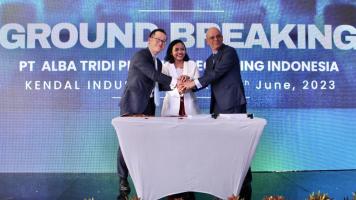The Global Plastics Treaty and Implications for Southeast Asia
Event Type:
Date:
Time:
Organizer:
The primary goal of the anticipated treaty is to establish a comprehensive framework that addresses all stages of the plastic lifecycle.
Despite increased national efforts, plastic pollution continues to rise and could potentially triple by 2040 from current levels. In March 2022, the United Nations Environment Assembly (UNEA) recognized the urgent need to address this crisis and adopted a resolution aimed at eliminating plastic pollution. UNEA plans to draft an internationally binding agreement, the Global Plastics Treaty (GPT), by end-2024, to be adopted by countries by 2025. The treaty's primary goal is to establish a comprehensive framework that addresses all stages of the plastic lifecycle.
This webinar on the Global Plastics Treaty and its implications for Southeast Asia is designed to enhance understanding of the treaty’s potential impact on the region's environmental and economic landscape. It will explore key opportunities for Southeast Asia to align with global standards and leverage the treaty to advance sustainability goals. The discussion will also highlight strategic actions and opportunities for stakeholders across the region to engage with and benefit from the evolving global plastics landscape. The webinar offers valuable insights into how Southeast Asia can navigate, finance, and benefit from the global shift toward a circular plastics economy.
The webinar is organized by the Green Finance Hub (GFH) of ADB's Southeast Asia Department and the ASEAN Catalytic Green Finance Facility (ACGF). It is hosted by ADB’s Southeast Asia Development Solutions (SEADS) platform.
The GFH provides crosscutting support to ADB's developing member countries in Southeast Asia to accelerate green investments and advance innovative financing solutions in response to the region's climate, energy, and financing needs. The ACGF is an ASEAN Infrastructure Fund initiative supporting governments in Southeast Asia to prepare and finance infrastructure projects that promote environmental sustainability and contribute to climate change goals. The ACGF is owned by ASEAN governments and ADB and is managed by GFH.
Speakers
- Roger Joseph Guzman, International Legal Specialist (Consultant), Climate Change and Sustainable Development Department, Asian Development Bank
- Mahesh Pradhan, Coordinator, Coordinating Body on the Seas of East Asia (COBSEA)–United Nations Environment Programme
- Umesh Madhavan, Research Director, The Circulate Initiative
- Raquel Smith Ortega, Chief, Climate Change Mainstreaming and Integration Division, Climate Change Service, Department of Environment and Natural Resources, Philippines
- James Baker, Senior Circular Economy Specialist, Climate Change and Sustainable Development Department, Asian Development Bank
- Anna Fink, Senior Country Economist, Indonesia Resident Mission, Asian Development Bank
- Ghislain de Valon, Senior Infrastructure Specialist (Innovation and Green Finance), Southeast Asia Department, Asian Development Bank


